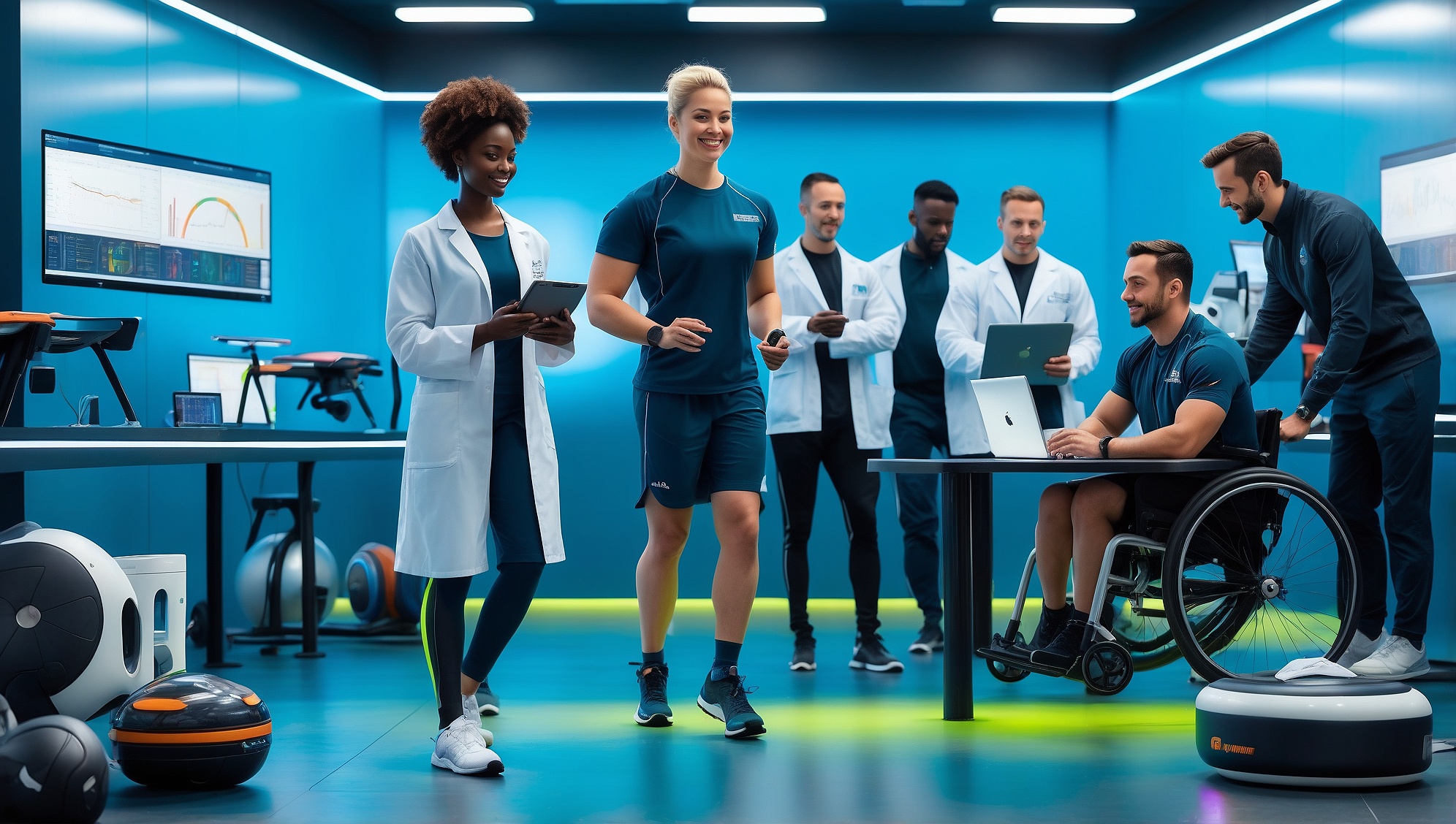Sports science careers span diverse industries, offering opportunities to apply knowledge of human physiology, biomechanics, and psychology to optimize athletic performance, improve health, and advance scientific understanding. Whether your passion lies in hands-on training, research, or technology, there are multiple paths to pursue. Below, we explore some of the most sought-after roles in fitness, coaching, and research.
Careers in Fitness
Sports science professionals play a pivotal role in helping individuals achieve their physical potential. These roles often focus on improving strength, endurance, and overall well-being.
Strength and Conditioning Coach
Strength and conditioning coaches design and implement training programs tailored to athletes’ needs. They focus on building power, speed, agility, and injury prevention. Key responsibilities include:
- Conducting fitness assessments.
- Developing sport-specific training regimens.
- Monitoring athlete performance and adjusting programs as needed.
Personal Trainer
Personal trainers work with individuals to meet fitness goals, from weight loss to strength building. They combine expertise in exercise science with interpersonal skills to provide one-on-one guidance. Daily tasks may involve:
- Creating personalized workout plans.
- Teaching proper exercise techniques.
- Tracking client progress and motivating them to stay consistent.
Fitness Consultant
Fitness consultants collaborate with gyms, corporations, and individuals to create comprehensive wellness strategies. They may specialize in workplace health programs or community fitness initiatives. Responsibilities include:
- Analyzing client needs.
- Recommending fitness programs or equipment.
- Evaluating the success of implemented plans.
Exercise Physiologist
Exercise physiologists focus on health and rehabilitation through scientifically-backed exercise programs. They often work with patients recovering from illnesses or injuries. Their work includes:
- Developing tailored fitness plans for rehabilitation.
- Monitoring physiological responses to exercise.
- Conducting fitness and stress tests.
Careers in Coaching
Coaching professionals utilize sports science to refine athletic performance and develop winning strategies. These roles are integral to competitive sports and athlete development.
Sports Coach
Sports coaches guide athletes and teams to success through strategic planning, technical skill improvement, and mental preparation. Their responsibilities vary by sport and level, but common duties include:
- Analyzing opponents and planning game strategies.
- Conducting training sessions to build skills and teamwork.
- Motivating players to perform under pressure.
Performance Analyst
Performance analysts work closely with coaching staff to evaluate athlete and team performance using video and data analysis. They specialize in identifying strengths and weaknesses. Key tasks include:
- Recording and analyzing match footage.
- Using statistical tools to measure performance metrics.
- Providing actionable insights to coaches and players.
Youth Sports Development Coach
Youth development coaches focus on nurturing young athletes, fostering their skills and sportsmanship. They play an essential role in talent identification and early-stage training. Responsibilities include:
- Designing age-appropriate training programs.
- Promoting healthy competition and teamwork.
- Collaborating with parents and schools to support athletes’ growth.
Tactical Strength and Conditioning Specialist
Tactical strength and conditioning specialists work with military, law enforcement, and emergency personnel. They ensure individuals in physically demanding roles maintain peak performance. Their tasks include:
- Crafting functional training programs.
- Evaluating physical readiness for duty.
- Teaching injury prevention techniques.
Careers in Research
Research careers in sports science involve investigating the science of human movement, performance, and recovery. These roles contribute to groundbreaking advancements in sports and health.
Sports Scientist
Sports scientists research methods to improve athletic performance, reduce injury risks, and enhance recovery processes. They may work in academia, professional sports organizations, or private labs. Their work includes:
- Conducting experiments to analyze biomechanical and physiological factors.
- Publishing findings in academic journals.
- Collaborating with coaches and athletes to apply research insights.
Biomechanist
Biomechanists study how the body moves and how to optimize it for better performance and injury prevention. Their work involves:
- Using motion-capture technology to analyze movement.
- Designing equipment to improve athletic efficiency.
- Advising on technique modifications for safer and more effective training.
Sports Psychologist
Sports psychologists focus on the mental aspects of athletic performance, including motivation, confidence, and stress management. Their responsibilities include:
- Developing mental training programs for athletes.
- Addressing performance anxiety or burnout.
- Supporting teams in creating cohesive and positive dynamics.
Academic Researcher
Academic researchers in sports science explore theoretical and practical aspects of sports and physical activity. They may specialize in areas like motor learning, nutrition, or exercise physiology. Tasks involve:
- Securing grants for large-scale studies.
- Designing and conducting experiments.
- Teaching sports science courses at universities.
Emerging Opportunities in Sports Science
Technological advancements and societal trends continue to create new avenues in sports science. These include roles like wearable technology specialists, virtual reality trainers, and nutrition technologists. Professionals in these areas integrate cutting-edge tools and data to push the boundaries of human performance.
Skills and Qualifications for Sports Science Careers
Pursuing a career in sports science requires a combination of education, certifications, and practical experience. Common requirements include:
- A degree in sports science, kinesiology, or a related field.
- Certifications such as NSCA-CSCS, ACSM-CEP, or NASM-CPT.
- Practical experience through internships or volunteer work in sports settings.
Final Thoughts
Sports science careers offer diverse and rewarding opportunities across fitness, coaching, and research. Whether you’re passionate about helping individuals achieve their fitness goals, leading athletes to victory, or contributing to scientific advancements, there’s a role that aligns with your interests and skills. Each career path allows you to make a tangible impact on individuals and the broader field of sports.
